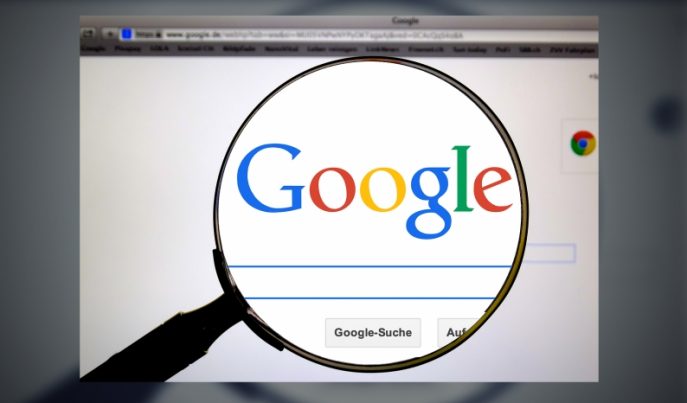
Supreme Court denies Google’s request to delay, clearing path for major Play Store reforms
Thursday, October 09, 2025 by Willow Tohi
http://www.progress.news/2025-10-09-sc-denies-googles-request-delay-play-store-reforms.html

- The U.S. Supreme Court rejected Google’s emergency request to pause antitrust-mandated changes to its Play Store.
- Epic Games’ 2023 victory forces Google to allow third-party payment links and rival app stores by 2026.
- Google warns of security risks, but courts cite “replete” evidence of anticompetitive conduct.
- Reforms could lower costs for developers and consumers, disrupting Google’s 15-30% fee structure.
- Google plans a full Supreme Court appeal by October 27, but immediate compliance is now required.
The U.S. Supreme Court has denied Google’s bid to delay sweeping reforms to its Android app ecosystem, dealing a blow to the tech giant’s control over the lucrative Play Store. The decision, issued Monday, upholds a 2023 antitrust ruling favoring Epic Games, maker of Fortnite, and accelerates changes that could reshape mobile app markets worldwide. With Google’s appeal options narrowing, the tech giant must now implement court-ordered measures—including allowing third-party payment systems and rival app stores—by mid-2026.
The legal battle: Epic’s antitrust victory
Epic Games sued Google in 2020, alleging the company stifled competition by locking Android users into its Play Store and imposing steep fees on in-app purchases. A San Francisco jury agreed in 2023, finding Google’s practices violated antitrust laws. U.S. District Judge James Donato later mandated structural changes, including:
- Payment freedom: Developers can bypass Google’s billing system via external links (effective October 2025).
- Open access: Competing app stores must be allowed within the Play Store by July 2026.
Google argued these reforms would expose users to security risks and harm its business model. Yet courts repeatedly dismissed these claims, with the Ninth Circuit noting “evidence [of] anticompetitive conduct” was overwhelming.
Google’s last stand: Security claims vs. market control
In its failed Supreme Court appeal, Google warned that sideloading apps—installing software outside its curated store—would invite malware and piracy. The company cited risks to 100 million U.S. Android users and 500,000 developers. However, critics, including Epic, dismissed these concerns as fearmongering. They pointed to Apple’s iOS, where sideloading remains restricted despite similar antitrust scrutiny, as evidence Google’s grip was never about safety—but profit.
Broader implications: A crack in the walled garden?
The ruling signals a shift in how courts view Big Tech’s gatekeeping power. For years, Google and Apple have defended their app store dominance as essential for security and innovation. Yet regulators worldwide increasingly see it as monopolistic. The EU’s Digital Markets Act already forces Apple to permit sideloading, and now U.S. courts are following suit.
For consumers, the changes could mean lower prices—developers no longer forced to use Google’s payment system may pass savings to users. For Google, the stakes are higher: its Play Store generated $12 billion in 2024, per Sensor Tower, much from its 15-30% commission.
What’s next: Google’s final appeal
Google vows to fight on, with a full Supreme Court petition due by October 27. Yet the clock is ticking: the first reforms take effect this month. Meanwhile, in a post on X, Epic CEO Tim Sweeney said, “The Supreme Court has thrown out Google’s stay request. Starting October 22, developers will be legally entitled to steer US Google Play users to out-of-app payments without fees, scare screens and friction – same as Apple App Store users in the US!” Epic hailed the decision as a win for “competition and lower prices,” while antitrust advocates see it as a blueprint for future cases against tech monopolies.
A turning point for app store dominance
The Supreme Court’s refusal to intervene marks a pivotal moment in the decade-long battle over Big Tech’s control. Whether Google’s appeal succeeds or fails, the Play Store—and perhaps the entire app economy—will never be the same. For now, the message is clear: the era of unchecked app store monopolies may finally be ending.
As Google scrambles to adapt, the case underscores a growing judicial appetite to rein in tech giants—proving even the most entrenched monopolies aren’t immune to accountability.
Sources for this article include:
Tagged Under: Tags: antitrust, Big Tech, computing, glitch, Google, Liberty, monopoly, Play Store, progress, scotus, Supreme Court, tech giants
RECENT ARTICLES


A silent fire: Landmark medical report declares inflammation a primary culprit in heart disease
By Ava Grace

Supreme Court denies Google’s request to delay, clearing path for major Play Store reforms
By Willow Tohi

Trump moves boldly: Declares Antifa a terror threat, promises crackdown

Historic Gaza ceasefire agreed as Trump announces hostage release and Israeli withdrawal
By Cassie B.
COPYRIGHT © 2017 PROGRESS NEWS


